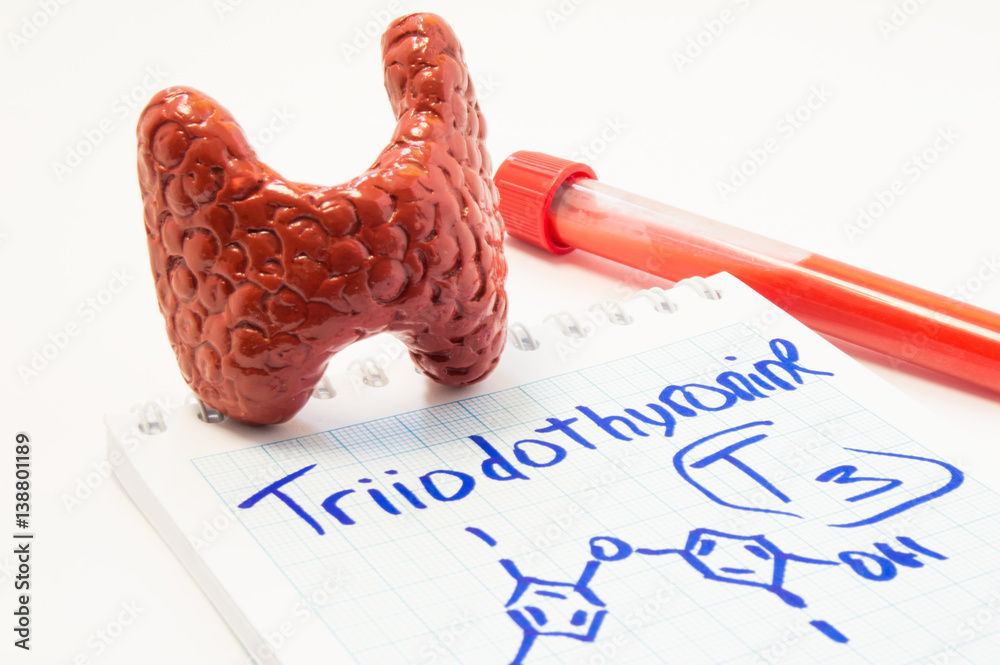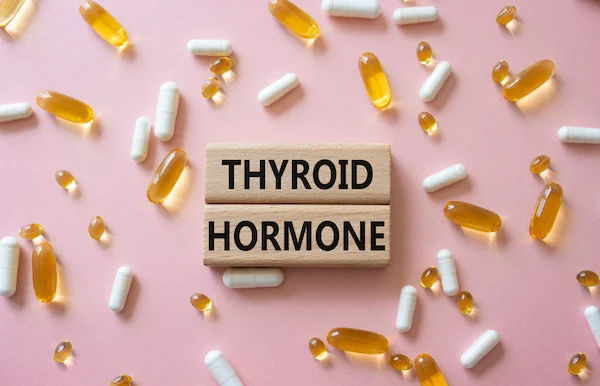Understanding Low T3 Levels And Implications
Low T3 levels can indicate thyroid dysfunction or illness. Understand what causes low T3, its symptoms, and how it affects your metabolism and overall health.

Written by Dr. Siri Nallapu
Reviewed by Dr. Dhankecha Mayank Dineshbhai MBBS
Last updated on 31st Jul, 2025

Introduction
Our bodies rely on a delicate balance of hormones to function properly, and thyroid hormones play a crucial role in maintaining energy, metabolism, and overall well-being. One such hormone is Triiodothyronine (T3), which is essential for regulating various bodily functions. When T3 levels drop below normal, it can lead to health concerns.
If you or someone you know has been diagnosed with low T3 levels, this article will help you understand what it means, why it happens, and how to manage it effectively.
What is T3?
T3 is one of the two main hormones produced by the thyroid gland (the other being T4). It plays a key role in:
Metabolism: Controls how your body uses energy.
Heart function: Affects heart rate and blood pressure.
Brain function: Influences mood, memory, and concentration.
Body temperature regulation: Helps maintain warmth.
Growth and development: Especially important in children.
Most T3 is produced by converting T4 (thyroxine) into its active form (T3) in the liver and other tissues. When this conversion is disrupted, or if the thyroid isn’t producing enough hormones, low T3 levels can occur.
Symptoms of Low T3 Levels
Low T3 can cause a range of symptoms, which may develop gradually. Common signs include:
Fatigue and weakness: Feeling unusually tired, even after rest.
Weight gain: Difficulty losing weight despite diet and exercise.
Cold intolerance: Feeling excessively cold, especially in hands and feet.
Brain fog: Trouble concentrating, memory lapses, or depression.
Dry skin and hair loss: Brittle nails and thinning hair.
Muscle aches and joint pain: Unexplained stiffness or discomfort.
Slowed heart rate: A lower-than-normal pulse.
If you experience these symptoms persistently, it’s important to get your thyroid levels checked.
Get Your Symptoms Checked By APhysicians
Causes of Low T3 Levels
Several factors can contribute to low T3 levels, including:
1. Hypothyroidism (Underactive Thyroid)
The thyroid gland doesn’t produce enough hormones.
Common causes: Hashimoto’s thyroiditis (autoimmune disease), iodine deficiency, or thyroid surgery.
2. Non-Thyroidal Illness (NTI) or Euthyroid Sick Syndrome
Chronic illnesses (like kidney disease, liver disease, or severe infections) can reduce T3 conversion.
The body lowers T3 to conserve energy during illness.
3. Poor T4 to T3 Conversion
Stress, malnutrition, or deficiencies in selenium, zinc, or iron can impair conversion.
High cortisol (stress hormone) levels may also interfere.
4. Medications
Some drugs (like beta-blockers, steroids, or amiodarone) can affect thyroid function.
5. Extreme Dieting or Malnutrition
Very low-calorie diets or eating disorders can disrupt thyroid hormone production.
How Low T3 Affects Your Health?
If left untreated, low T3 levels can lead to:
Metabolic slowdown: Weight gain, high cholesterol, and insulin resistance.
Heart problems: Increased risk of heart disease due to altered lipid levels.
Mental health issues: Depression, anxiety, and cognitive decline.
Fertility problems: Irregular periods and difficulty conceiving in women.
Weakened immunity: Higher susceptibility to infections.
Early diagnosis and treatment can prevent these complications.
Check Your T3 Levels
Managing Low T3 Levels
Here’s how to manage low T3 levels:
1. Medical Treatment
Thyroid hormone replacement (if hypothyroidism is the cause).
Your doctor may prescribe levothyroxine (T4) or liothyronine (T3) in some cases.
2. Diet and Nutrition
Eat selenium-rich foods (Brazil nuts, fish, eggs) to support T3 conversion.
Include zinc and iron (pumpkin seeds, lentils, spinach) for thyroid function.
Avoid excessive soy and cruciferous veggies (in large amounts, they may interfere with thyroid function).
Stay hydrated and eat balanced meals to support metabolism.
3. Stress Management
Chronic stress lowers T3 levels. Try:
Yoga, meditation, or deep breathing exercises.
Adequate sleep (7-9 hours per night).
4. Exercise Moderately
Gentle exercises (walking, swimming) help boost metabolism without overstressing the body.
Avoid excessive high-intensity workouts if fatigued.
5. Regular Monitoring
Get thyroid function tests (T3, T4, TSH) periodically if you have a history of thyroid issues.
When to See a Doctor?
If you experience persistent symptoms like extreme fatigue, unexplained weight changes, or mood disturbances, consult a doctor. A simple blood test can check your thyroid levels.
Early detection and proper management can help restore balance and improve your quality of life.
Conclusion
Low T3 levels can significantly impact your energy, mood, and overall health. While it may seem overwhelming, the good news is that with the right treatment and lifestyle adjustments, you can manage it effectively.
If you suspect thyroid issues, don’t ignore the signs—get tested and take the first step toward better health.
Consult Top Physicians
Get Your Symptoms Checked By APhysicians

Dr. Suraja Nutulapati
General Physician/ Internal Medicine Specialist
10 Years • MBBS, MD (Internal Medicine)
Hyderabad
Apollo 24|7 Clinic, Hyderabad
(850+ Patients)

Dr. Hrishikesh Shivakumar
General Physician/ Internal Medicine Specialist
9 Years • MBBS, MD
Bangalore
Apollo 24|7 Clinic - Karnataka, Bangalore

Dr Divya Lekha Gunta
General Practitioner
10 Years • MBBS, MD (Pathology)
Visakhapatnam
Apollo 24|7 Clinic - Andhra Pradesh, Visakhapatnam

Dr. Mohammed Kamran
General Practitioner
5 Years • MBBS, FIDM
Nashik
Apollo 24|7 Clinic - Maharashtra, Nashik

Dr. Lakshmi Sanjitha Kakani
General Physician/ Internal Medicine Specialist
6 Years • MBBS, MD (General Medicine)
Visakhapatnam
Apollo 24|7 Clinic - Andhra Pradesh, Visakhapatnam
Consult Top Physicians

Dr. Suraja Nutulapati
General Physician/ Internal Medicine Specialist
10 Years • MBBS, MD (Internal Medicine)
Hyderabad
Apollo 24|7 Clinic, Hyderabad
(850+ Patients)

Dr. Hrishikesh Shivakumar
General Physician/ Internal Medicine Specialist
9 Years • MBBS, MD
Bangalore
Apollo 24|7 Clinic - Karnataka, Bangalore

Dr Divya Lekha Gunta
General Practitioner
10 Years • MBBS, MD (Pathology)
Visakhapatnam
Apollo 24|7 Clinic - Andhra Pradesh, Visakhapatnam

Dr. Mohammed Kamran
General Practitioner
5 Years • MBBS, FIDM
Nashik
Apollo 24|7 Clinic - Maharashtra, Nashik

Dr. Lakshmi Sanjitha Kakani
General Physician/ Internal Medicine Specialist
6 Years • MBBS, MD (General Medicine)
Visakhapatnam
Apollo 24|7 Clinic - Andhra Pradesh, Visakhapatnam



